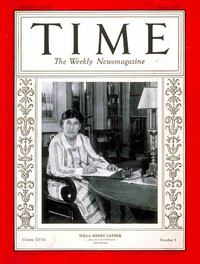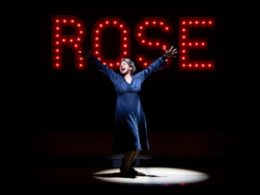
Recent blog appreciations of My Ántonia, one of Willa Cather’s early novels, and of Sapphira and the Slave Girl, her last novel, bring to mind how divergent opinions once were about Cather’s early and late works. Although Granville Hicks conceded that O Pioneers! and My Ántonia “have their importance in American literature” because they have a “basis in reality,” his essay “The Case Against Willa Cather” started a trend in 1933 to denigrate her later works because they never tried to “see contemporary life as it is.” “She sees only that it lacks what the past, at least in her idealization of it, had,” Hicks wrote. Many other critics, including Alfred Kazin and Lionel Trilling, took a similar line.
Cather’s reputation as an antimodernist stems in part from her angry responses to such criticism. She called her 1936 collection of essays Not Under Forty because “the book will have little interest for people under forty years of age. The world broke in two in 1922 or thereabouts, and the persons and prejudices recalled in these sketches slid back into yesterday’s seven thousand years.” The collection includes her 1922 essay “The Novel Démeublé,” which many see as her writing credo:
Whatever is felt upon the page without being specifically named there—that, it seems to me, is created. It is the inexplicable presence of the thing not named, of the over-tone divined by the ear but not heard by it, the verbal mood, the emotional aura of the fact or the thing or the deed, that gives high quality to the novel or the drama, as well as to poetry itself.
Shelves of books have been written about what Cather meant by “the thing not named.” Does it echo Oscar Wilde’s “the Love that dared not speak its name”? Or was she aligning herself with the allusive, suggestive writing of the modernists who invite readers to create meaning as they read?
Wallace Stevens, no mean modernist, was an enthusiastic fan of Cather’s later work. In a letter to a friend about Sapphira and the Slave Girl on December 9, 1940—two days after the novel was published on Cather’s birthday—he observed:
Miss Cather is rather a specialty. You may not like the book; moreover, you may think she is more or less formless. Nevertheless, we have nothing better than she is. She takes so much pains to conceal her sophistication that it is easy to miss her quality.
Cather’s clear prose style helped make her books bestsellers, but can a writer be too readable? In Cather, Canon, and the Politics of Reading Deborah Carlin suggests “that it is the lucidity and seeming readability of Cather’s concise prose that make her novels difficult to place squarely within canonical modernism as we know it, despite the efforts of critics to redefine the parameters of what ‘modernism’ as a term signifies.”
The good news appears to be that today’s readers are able to discover Cather’s later works anew. As the writer who posts on The Port Stands at Your Elbow remarked with, we think, delight after picking up Willa Cather: Later Novels for Shadows on the Rock: “The collection also includes A Lost Lady, The Professor’s House, Lucy Gayheart and Sapphira and the Slave Girl, none of which I know anything about.”



